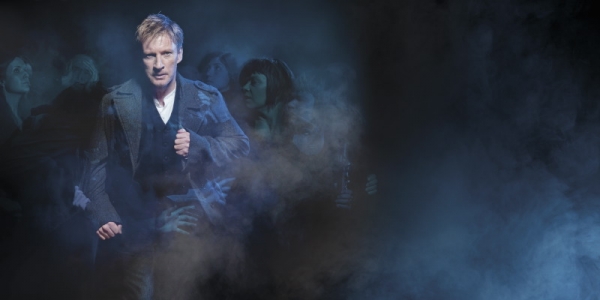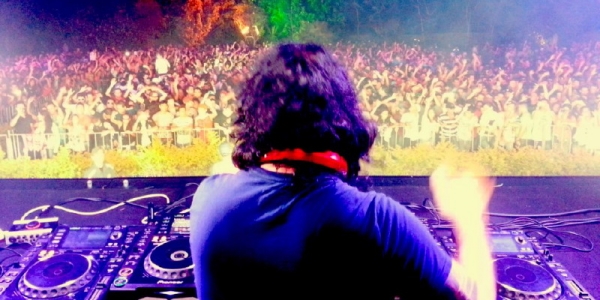Miller had written The Crucible in the early ‘50s, well in advance of his appearance before the Congressional committee. Set in the town of Salem in Massachusetts the late 17th century, the play tells the story of John Proctor, an apparently good man battling to retain his reputation in the face of accusations of witchcraft and rising community fervor. Like Proctor, Miller had also strayed from his marital vows, embarking on an affair with Marilyn Monroe (whom he would eventually marry) while still married to his first wife. Art imitates life, and life mimics art.
It’s the combination of the personal and political that Sam Strong, director of the new Melbourne Theatre Company production of Miller’s classic play, believes underpins the continuing popularity of The Crucible. “The political side is well known in its exploration of hysteria, fear and persecution, but what’s equally recognisable in The Crucible is that personal moral dilemma that exists for John Proctor, especially in that love triangle that exists between him, Elizabeth Proctor and Abigail Williams,” Strong says. “It’s Miller’s tapping into the personal dilemma of that experience that makes it such a powerful story.”
Strong had first come across The Crucible when, as a high school student, he saw a production of the play. “Watching that high school production I was in awe of both people I knew transforming into characters, and also what a well-told story could do a room full of people,” Strong says.
Many years after that original encounter, and Strong is still fascinated with Miller’s ability to use historical events to explore aspects of sociological and political behaviour. “The mastery of what Miller has done in writing about 1600s Salem in 1950s America is that he’s lifted the entire experience beyond the time,” Strong says. “He’s dealing with processes of what humans to do to other people, whether that’s singling people out that you’re afraid of, or how a group will turn on an individual.”
While the Enlightenment may have largely exorcised witchcraft and other religious superstitions from public discourse, The Crucible reminds us that society remains prone to bouts of hysteria and irrationality.
“I think what’s wonderful about what Miller’s done is that they are processes that exist across time – those things happened before Salem, and after Salem, and they’ll continue to happen after Salem. He managed to write about fundamental human things that exist across time,” Strong says.
Perhaps because The Crucible uses historical events to explore contemporary events and sociological dynamics, productions of the play have tended to adhere closely to Miller’s original plot. The MTC production is no exception. “We are deeply faithful to Miller’s play,” Strong says. “It’s been a very unique experience working on this play compared to other plays that I’ve worked on, in that the best version of The Crucible is one that’s faithful to Miller’s intention. For me, the plot is about as close to perfect as you can get, and I think you mess with that plot at your peril.”
The MTC production features David Wenham in the role of John Proctor. “It was both a very quick process, and a very prolonged process,” Strong says. “With David Wenham, there’s a kind of everyman quality to David and likeability, and a very easy degree of empathy with David that makes him perfect for Proctor. At the same time, he’s very good at playing someone with an inner turmoil, so when he said he was interested, we were thrilled.”
For the part of Elizabeth Proctor, Strong chose Anita Hegh. “Anita’s very good at dealing with very intense emotions, and suppressing those emotions. So both with them were very logical castings.” The rest of the cast is very diverse, ranging from recent drama graduates through to acclaimed Australian actress Julia Blake, who plays the part of Rebecca Nurse, the elder, reasoned member of the community who, like Proctor, finds herself accused of witchcraft. “It’s delightful as a director to work with such a range of performers, of such a high calibre,” Strong says.
The events of The Crucible continue to be repeated as social perils evolve. In the immediate aftermath of 9/11, Western nations – including Australia – adopted the same irrational behaviour as the religious zealots in 17th century Salem. Where there is an evil to be uncovered, it seems, society has learnt little over the last 300 years.
“The human tendencies that express themselves in witch hunts haven’t gone away, it’s just the manifestations that have changed,” Strong says. “I think the reason why The Crucible is still relevant now is that it speaks to fundamental human processes that happened before The Crucible, that have happened afterwards, and will continue to happen.”
Strong doesn’t have an answer for why social groups remain prone to irrational collective behaviour – especially in an age of so-called reason. “I think that sort of speculation is for people who come to the show, rather than for me to comment,” Strong laughs. “I think the best thing is for people to come to the show and make their own assessment.”
BY PATRICK EMERY







